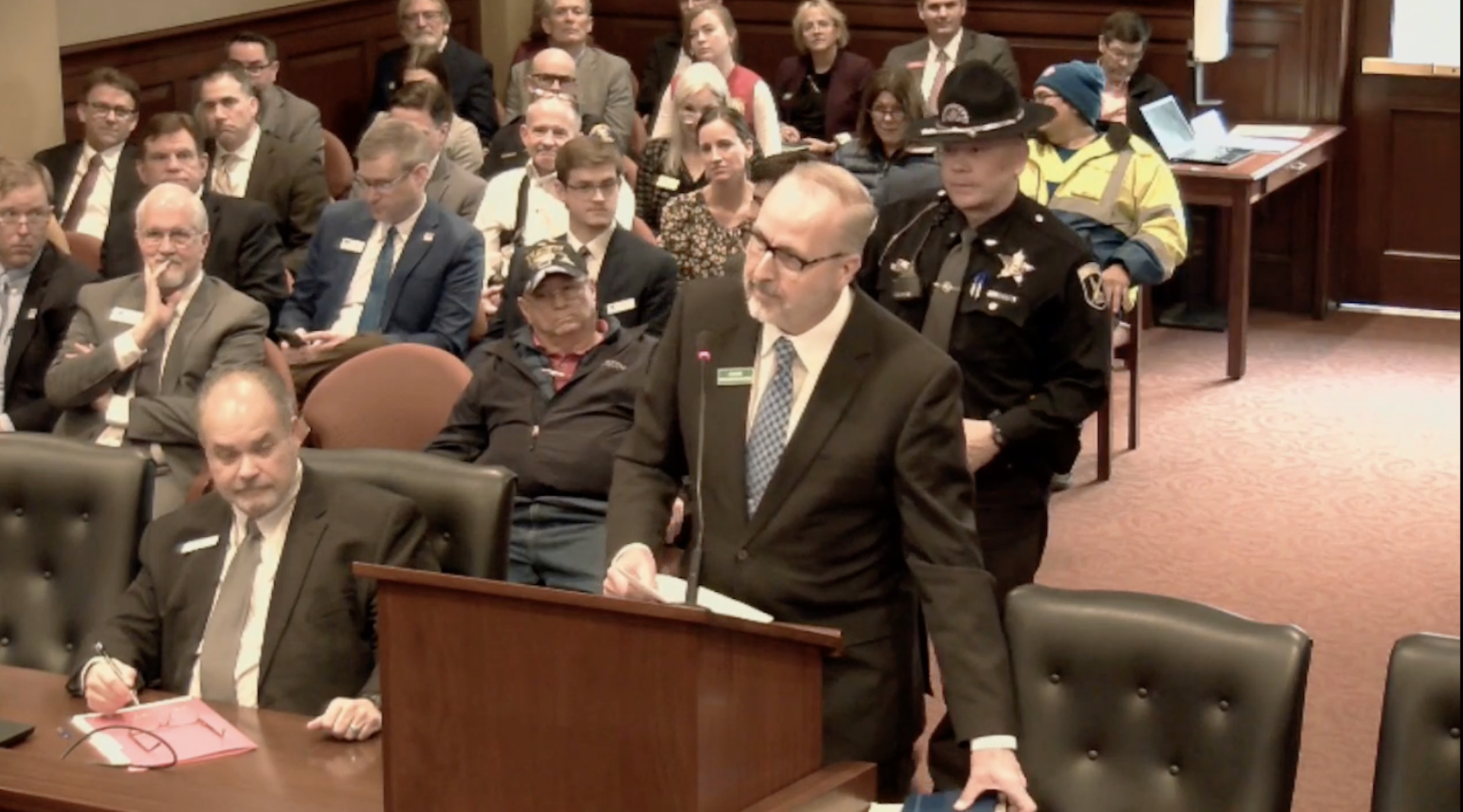
The Idaho Launch postsecondary incentives bill is still alive, but it’s in limbo.
A skeptical and divided Senate Commerce and Human Resources Committee sent the $102 million bill to the Senate floor — where it might or might not be amended.
And either way, Gov. Brad Little’s controversial plan to address labor shortages and worker training could get a late-session makeover — in an attempt to get the proposal through the Senate and to the governor’s desk for his signature. Lawmakers are looking at changes that could cut the pricetag nearly in half, and address other nagging criticisms from opponents.
Those criticisms resurfaced during an hour of sharply divided public testimony, and during the committee’s debate.
“We have to have the courage to change our education model in Idaho,” said Sen. Jim Guthrie, R-McCammon, one of the co-sponsors of House Bill 24, as he persuaded colleagues to send the bill to the Senate floor. “I don’t want to see this bill die in committee.”
The bill at a glance — and the debate in a nutshell
The Idaho Launch program would provide high school graduates with an $8,500 incentive to continue their education. A graduate could use the $8,500 to pursue a four-year degree, a two-year degree, career-technical training or a workforce training.
The idea is to encourage graduates to pursue in-demand careers, as defined by labor statistics. And $80 million of the annual program costs would come from an in-demand careers fund, created during a special session of the Legislature in September.
But House Bill 24 has been controversial at nearly every turn. The House barely passed the bill on Feb. 6, on a razor-thin 36-34 vote. A day later, Senate leaders routed the bill to the Commerce and Human Resources Committee, over the objections of Senate hardliners, who wanted to see the bill routed to the more conservative Senate Education Committee.
Since then, the bill has been awaiting a Senate hearing.
And when that hearing came Tuesday afternoon, testimony was as mixed as ever.
Business and education leaders called the bill a visionary approach that will prepare young adults for high-paying jobs, and help Idaho employers find the skilled workers they need.
“We must reverse the trends of separating work from learning,” said Alex LaBeau, president of the Idaho Association of Commerce and Industry, a business group supporting HB 24.
“Launch is an investment in our future workforce and an investment in Idaho,” Kuna schools Superintendent Wendy Johnson said.
Critics said the bill smacks of socialism — and would create economic winners and losers, by pushing young adults toward careers that are deemed to be in high-demand.
“The American dream cannot be given,” said Dominic Brandon, a Republican precinct committee member from Canyon County. “It must be worked for.”
At one point, the hearing turned contentious.
“This bill is fraught with cronyism,” said Ron Nate of the Idaho Freedom Foundation. “It is a payoff for friends of the governor.”
Asked to elaborate, Nate pointed to House committee testimony that indicated the Launch program would provide trained workers for Doug Sayer, an Eastern Idaho businessman and a Little campaign donor.
Several committee members objected, and committee chairman Kevin Cook summoned an Idaho State Police trooper from the back of the room.
“Officer, would you help us?” said Cook, R-Idaho Falls, before again addressing Nate. “I need you to sit down.”
“Oh, am I done?” asked Nate.
“Yes,” said Cook.
The committee’s debate and decision
When it came time for the nine-member committee to discuss the bill, senators were divided.
Four Republicans — Dan Foreman of Moscow, Doug Ricks of Rexburg and Todd Lakey and Brian Lenney of Nampa — took turns voicing opposition.
The four might not have had the votes to kill the bill outright, since HB 24 appeared to have support from five committee members. Guthrie, Cook and Sen. Linda Wright Hartgen, R-Twin Falls, all are listed as bill co-sponsors. The committee’s two Democrats, James Ruchti of Pocatello and Janie Ward-Engelking of Boise, voiced support for the bill.
However, Guthrie led the push to send HB 24 to the floor for possible amendment, rather than trying to force a Senate vote in the next few days.
The delay centers on efforts to tweak HB 24.
On Wednesday morning, the Senate State Affairs Committee will consider a followup proposal — a “trailer bill,” in Statehouse parlance. The bill would reduce the overall Idaho Launch program costs to $60 million, down from the current $102 million; require students to put up at least a 10% match to their state award; and require the state Workforce Development Council to submit an annual report to legislators.
“It’s meant to be an outcomes-based report,” said Sen. Dave Lent, R-Idaho Falls, a bill co-sponsor.
Moving HB 24 to the Senate amending order could allow the “trailer bill” to work its way through the Legislature. Senators could then vote on HB 24 as is, or combine the two bills. (Lawmakers can make changes to a bill on the amending order, but they aren’t obligated to do so.)
Either way, HB 24 doesn’t appear likely to get a Senate vote in the near future.
The committee voted 7-2 to send the bill to the amending order, with Foreman and Ricks opposed.
